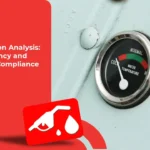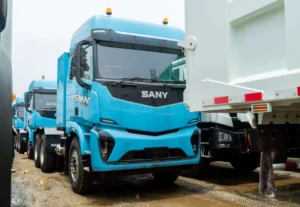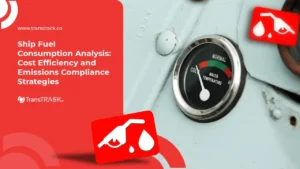How to Start a Car that Won’t Start, Check out These Tips!
Posted on August 7, 2024 by Nur Wachda Mihmidati

Facing a situation where a car cannot be started can be very annoying and disrupt daily activities. This problem is often caused by a variety of factors, from a weak battery to a malfunction in the ignition system. In this TransTRACK article, we will guide you through the essential steps to identify and address the causes of a car that won’t start, as well as provide practical solutions to avoid similar issues in the future. Keep reading for useful tips and steps you can take yourself to ensure your vehicle is always in top condition.
Steps to Start a Car that Won’t Start
Here are the steps to start a car that won’t start:
Check and Replace the Battery
Check the condition of the battery by looking at the terminals, making sure there is no corrosion or damage. If the battery is weak, try jump-starting or replacing the battery with a new one. A discharged battery is often the main cause of a car not starting.
Checking the Starter System
Check the wires and connectors on the starter to make sure they are all connected properly. If there are any problems, such as a clicking sound without engine rotation, it is likely that the starter motor or starter relay has a problem. Ensuring the starter system is functioning correctly is important for starting the engine.
Solving Fuel Problems
Ensure that the fuel tank is not empty and that the fuel pump is functioning properly. Check the fuel filter to make sure it is not clogged, which can block the flow of fuel to the engine. Problems with the fuel system can prevent the engine from starting.
Checking the Ignition System
Check the condition of the spark plugs and spark plug wires, making sure there is no damage or dirt that interferes with the spark. If the spark plug is worn, replace it with a new one so that the ignition process runs smoothly. A problematic ignition system can cause the engine to not start or function properly.
Causes of a Car That Can’t Start
There are several reasons why a car cannot be started. Here’s an explanation:
Weak or Dead Car Battery
A weak or dead battery can cause the car to not start because there is not enough power to turn the starter motor. Signs such as dim dashboard lights or a clicking sound when trying to start the engine could indicate this problem. Replacing or recharging the battery usually solves this problem.
Starter System Problems
The starter system includes the starter motor and the relay that starts the engine. If the starter motor or relay is damaged, the car will not start. Symptoms such as a clicking sound or no response when pressing the starter button indicate a possible problem with this system.
Fuel Problems
The car may not start if there is a problem with the fuel supply, such as an empty tank, a faulty fuel pump, or a clogged fuel filter. These problems impede the flow of fuel to the engine, making it unable to start. Checking the fuel level and fuel system components is important to identify this problem.
Damage to the Ignition System
A problematic ignition system, such as dirty spark plugs or a faulty ignition coil, can cause the engine not to start. These problems block the spark needed to burn the fuel and air mixture in the engine cylinders. Checking and replacing faulty ignition components usually solves this problem.
Now, if you often face the problem of your car not starting, checking the steps above can help identify the cause. However, to prevent similar issues in the future and ensure more efficient vehicle maintenance, consider using TransTRACK’s Vehicle Maintenance System. With this system, you can schedule and manage fleet maintenance automatically, monitor vehicle conditions in real-time, and get notifications regarding required maintenance. Start using TransTRACK’s Vehicle Maintenance System today and enjoy the convenience of maintaining the optimal performance of your vehicles!
Recent Post
Topic :
 Bahasa Indonesia
Bahasa Indonesia









